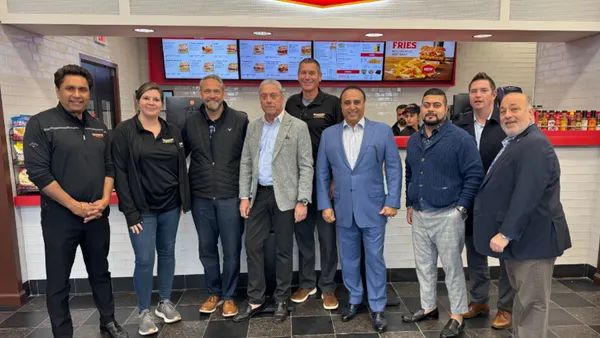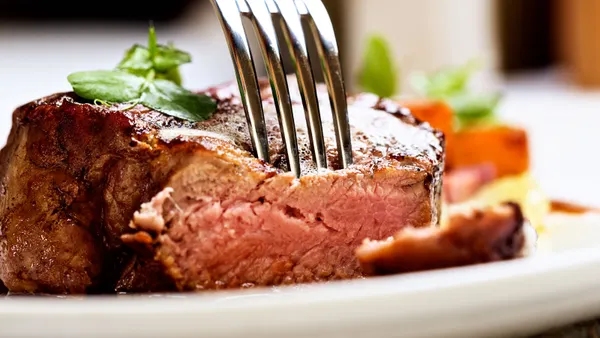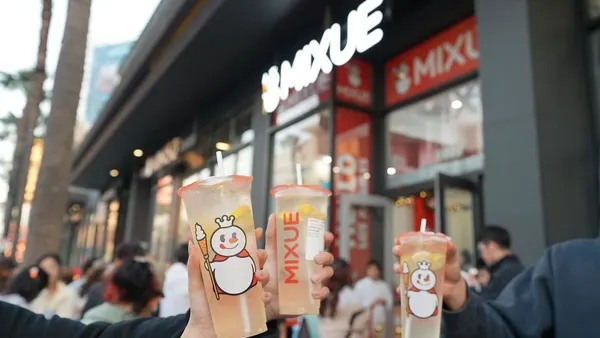Dive Brief:
- Dunkin' closed 687 by the end of the third quarter, including 447 Speedway locations, out of the 800 underperforming units expected to permanently shutter by the end of the year, according to an earnings release. These stores represent 8% of Dunkin's total U.S. restaurant footprint and 2% of the company’s 2019 U.S. systemwide sales. Net closures of U.S. Dunkin' locations was 466 during the third quarter.
- For many of its franchisees, closing these locations will allow them to redeploy capital into the brand, be that through a NextGen remodel, building new restaurants or relocating restaurants into higher traffic locations where a drive-thru can be added, Scott Murphy, president of Dunkin' Americas, said during an earnings call on Thursday.
- Dunkin's closures don't mean that new development isn’t happening. Franchisees opened 80 gross new units and completed 60 remodels during the quarter, Murphy said. These new locations are generating higher sales per restaurant, he said.
Dive Insight:
With the pandemic putting a spotlight on low-performing restaurants, Dunkin' isn't the only company closing underperforming locations. Dine Brands is eyeing closures of 100 IHOPs and 15 Applebee's within the next six months. A Denny’s franchisee also closed 15 stores in the spring.
While closures can negatively impact sales growth in the short term, Dunkin's closures don't appear to have done so. Dunkin's U.S. same-stores sales improved from a negative 18.7% during Q2 2020 to a positive 0.9% during Q3 2020. Revenue also grew 1.6% during the quarter, according to an earnings release.
With the additional 60 remodels completed, Dunkin’ now has 800 NextGen stores across its U.S. system, Murphy said. These remodels typically feature a drive-thru, which has become particularly important during this time and has helped generate more sales compared to QSRs that don’t have them. Drive-thrus, which make up 70% of Dunkin’s traditional portfolio and more than 90% of its newer markets, had double-digit same-store sales growth during the third quarter, Murphy said.
The company has also accelerated drive-thru technology tests, including adding more outdoor digital menu boards, line busting handheld tablets and a high-definition speaker system, he said. Many restaurant chains, including Restaurant Brands International's Burger King and Tim Hortons and Yum's Taco Bell, are redesigning their drive-thrus or creating prototypes with more lanes and technology to create a better and faster experience for customers.
Dunkin' is also modifying its NextGen remodels slightly to accommodate low-contact features, such as removable seating, no touch faucets, a walkup window and reconfigured front lines to encourage more social distancing for customers waiting to order, Murphy said.









